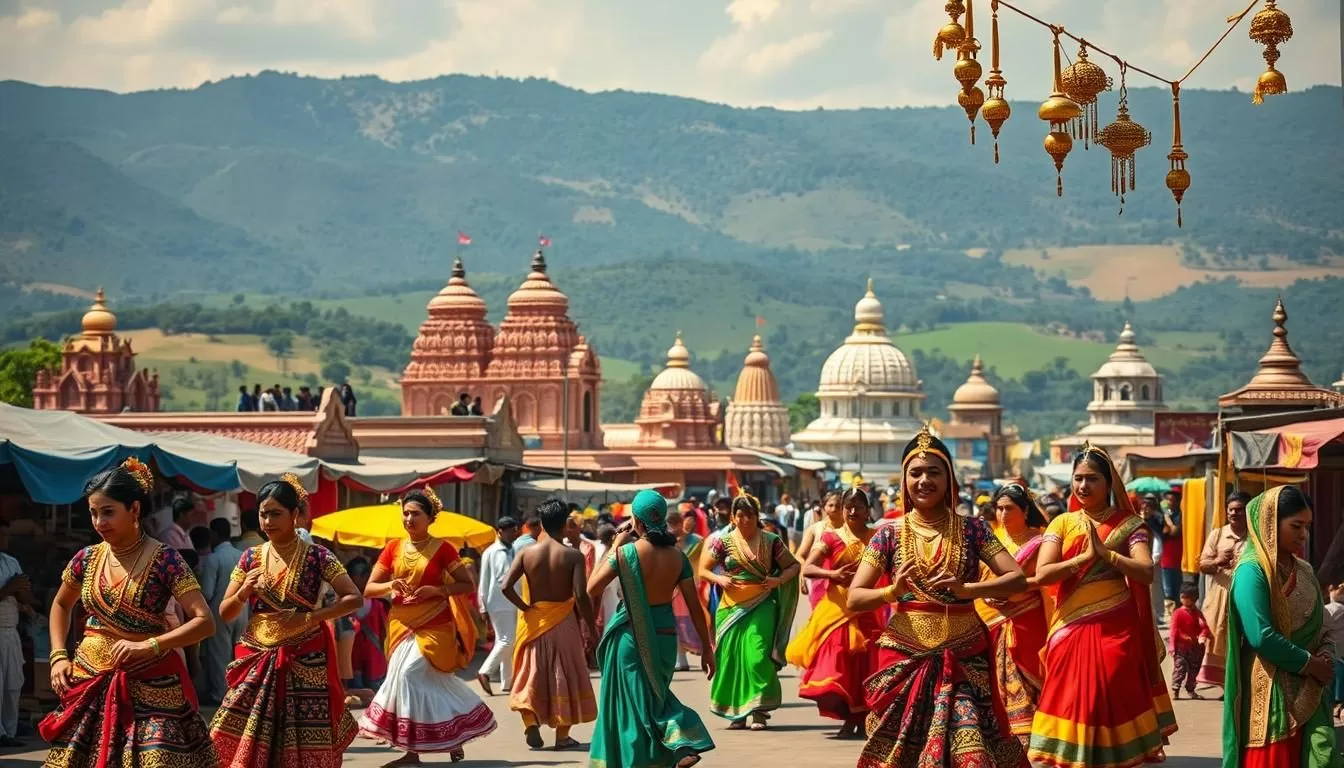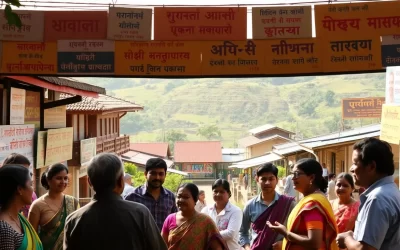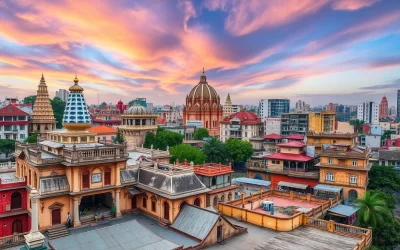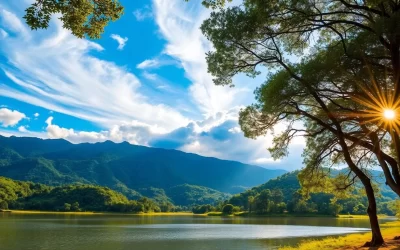Are you planning a visit to the northeastern state of Tripura? Timing your trip around its vibrant festivals can provide an immersive cultural experience unlike any other in India.
The unique blend of indigenous tribal customs and Hindu traditions creates a fascinating festival calendar, offering visitors authentic glimpses into local life. Throughout the year, the state comes alive with celebrations featuring traditional music, dance, rituals, and community gatherings.
This comprehensive guide will introduce you to the most significant festivals in Tripura, helping you plan your visit to coincide with these cultural highlights.
The Cultural Tapestry of Tripura
As you explore Tripura, you’ll discover a rich cultural heritage woven through its vibrant festivals. The state’s cultural identity is deeply rooted in its traditions and customs, which are beautifully showcased during various celebrations throughout the year.
Heritage Overview
Tripura’s heritage is a blend of its history, mythology, and cultural practices. The main purpose of fairs and festivals in Tripura is to worship gods and goddesses to obtain blessings for a prosperous future. This heritage is reflected in the numerous important festivals that take place, celebrating the start of a new year, Buddhism, or agriculture.
Significance of Festivals
Festivals in Tripura serve as vital cultural bridges, connecting the past with the present. They provide opportunities for community bonding and offer visitors authentic glimpses into Tripura’s living heritage. The elaborate rituals, traditional attire, folk music, and dance performances during these celebrations are a testament to the state’s rich cultural diversity.

Kharchi Puja: The Festival of 14 Gods
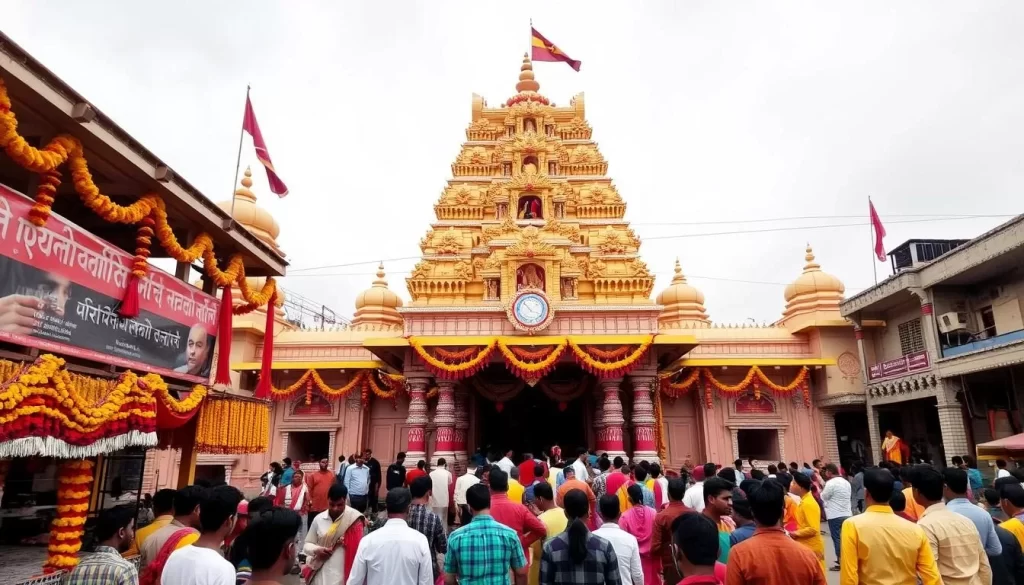
Experience the essence of Tripura through the Kharchi Puja festival, a unique blend of rituals and cultural festivities. This significant event is a celebration in honor of the fourteen gods, showcasing the state’s rich cultural heritage.
Origin and Religious Significance
The Kharchi Puja has its roots in the worship of the fourteen gods, believed to be the guardians of the land. This festival is a testament to the religious diversity and tolerance of Tripura.
Celebration Rituals and Traditions
During the Kharchi Puja, the Chaturdasha Devata Temple in Old Agartala becomes the focal point of all rituals. The festival is marked by traditional dances and the worship of the fourteen deities, creating a vibrant atmosphere.
When and Where to Experience Kharchi Puja
The event typically takes place in July or early August. To fully immerse yourself in the celebrations, plan to arrive a day before and stay for at least three days. The festivities extend throughout Agartala, offering multiple venues to experience the festival in all its glory.
Garia Puja: Honoring the God of Wealth
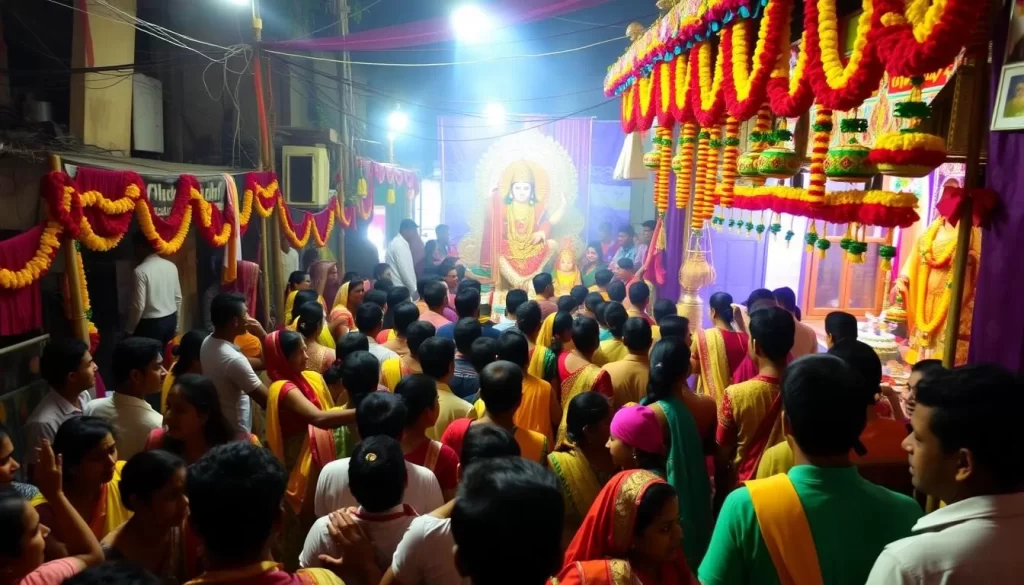
In the state of Tripura, Garia Puja is a revered festival that honors the God of Wealth. Celebrated throughout the state in April, coinciding with the Bengali New Year, Garia Puja is a significant cultural event.
The Deity and Its Importance
Garia Puja is dedicated to the worship of Garia, the God of Wealth. The deity is revered for prosperity and good fortune. The festival is a time for devotees to seek blessings for a prosperous year ahead.
Traditional Customs and Celebrations
During Garia Puja, a bamboo pole is worshipped, symbolizing the deity. The celebration includes a rally and various cultural performances. The festivities are a reflection of Tripura’s rich cultural heritage.
Best Places to Witness Garia Puja
For an authentic experience, visit tribal villages in Khowai and Dhalai districts. Jampuijala in West Tripura hosts one of the largest celebrations, featuring elaborate processions. Agartala offers a more accessible experience with cultural programs and exhibitions. The Tribal Research Institute in Agartala is also a valuable resource for understanding the festival’s significance.
Ganga Puja: The River Worship Festival
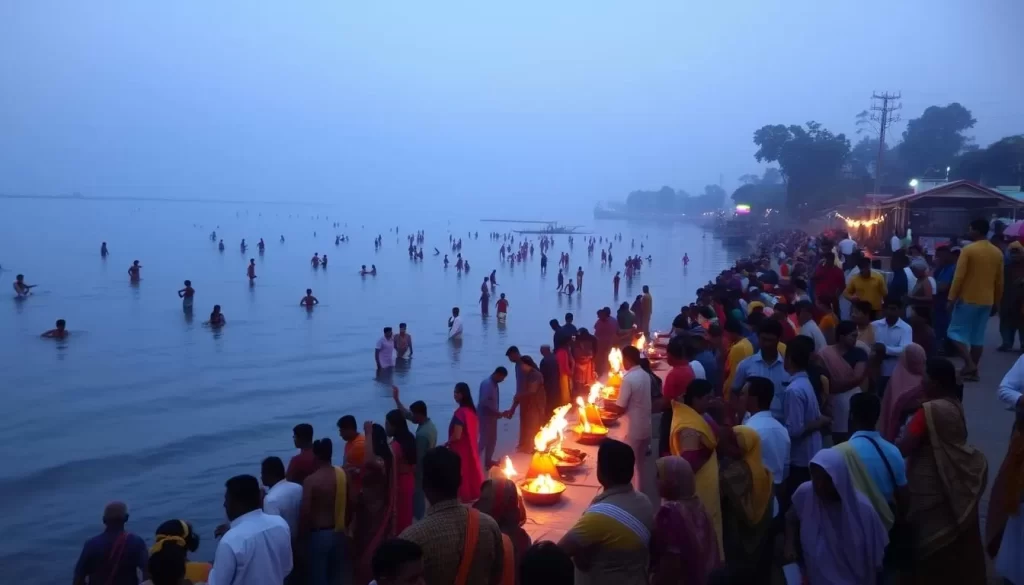
As spring arrives, Tripura comes alive with the Ganga Puja celebrations, reflecting the community’s spiritual connection with rivers. This festival is a significant part of Tripura’s cultural calendar, typically observed during March to May.
Cultural Significance and Beliefs
Ganga Puja is deeply rooted in the local culture, symbolizing reverence for the life-giving rivers. It’s a time for spiritual renewal and celebration of nature’s bounty.
Rituals and Ceremonial Practices
The festival involves sacred bathing rituals (Ganga Bath) and worship ceremonies at significant river locations. Devotees gather to perform these rituals, seeking spiritual cleansing and blessings.
Timing and Locations
The festival celebrated in Tripura coincides with the Bengali New Year, creating a vibrant atmosphere. Navanna is a key place to experience Ganga Puja, with its traditional and ceremonial practices. Visitors can witness the festivities and understand the local culture better by checking the local calendar for exact dates.
Ker Puja: Invoking the Protector Deity
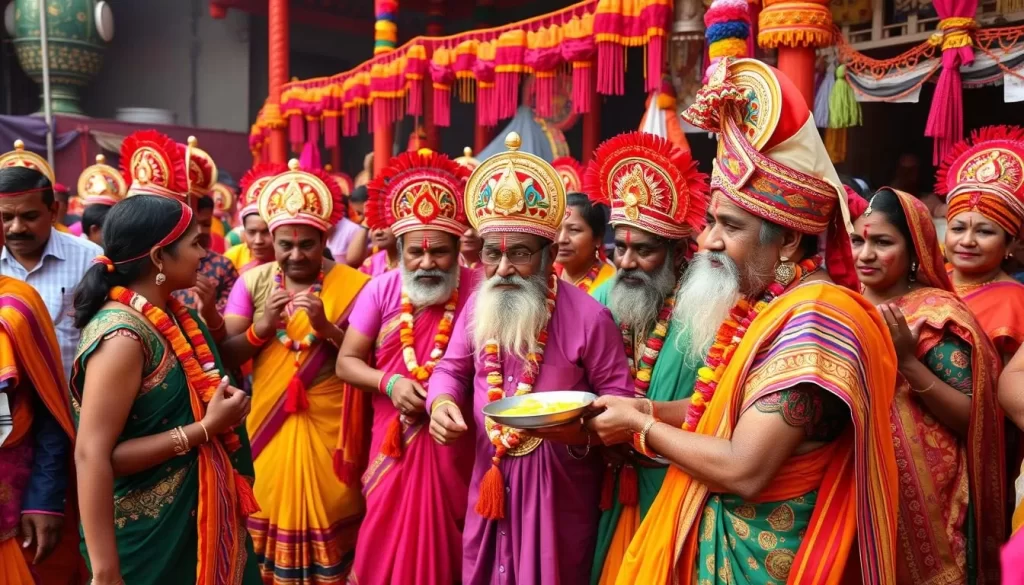
The Ker Puja festival, observed in honor of the protector deity, is a unique cultural experience in Tripura. Celebrated approximately two weeks after Kharchi Puja, it typically falls in late July or early August according to the traditional Bengali calendar.
Historical Background
Ker Puja has its roots in the state’s rich cultural heritage, honoring the protective deity that is believed to safeguard the community. Understanding its historical context enhances the appreciation of this significant festival celebrated with fervor.
Unique Customs and Prohibitions
The festival is marked by unique customs and certain prohibitions, making it intriguing for visitors. The events unfold over a full day and night, with significant rituals at dawn and dusk, considered auspicious for invoking protective deities.
When and Where to Observe
Ker Puja is observed throughout Tripura, with the most authentic celebrations taking place in Agartala, particularly around the Old Palace grounds. It’s a special experience that occurs once a week in the cultural calendar of the region, though not necessarily on a weekly basis. While it’s not related to the new year, experiencing Ker Puja is a unique cultural event.
Neermahal Water Festival: Celebrating Tripura’s Lake Palace
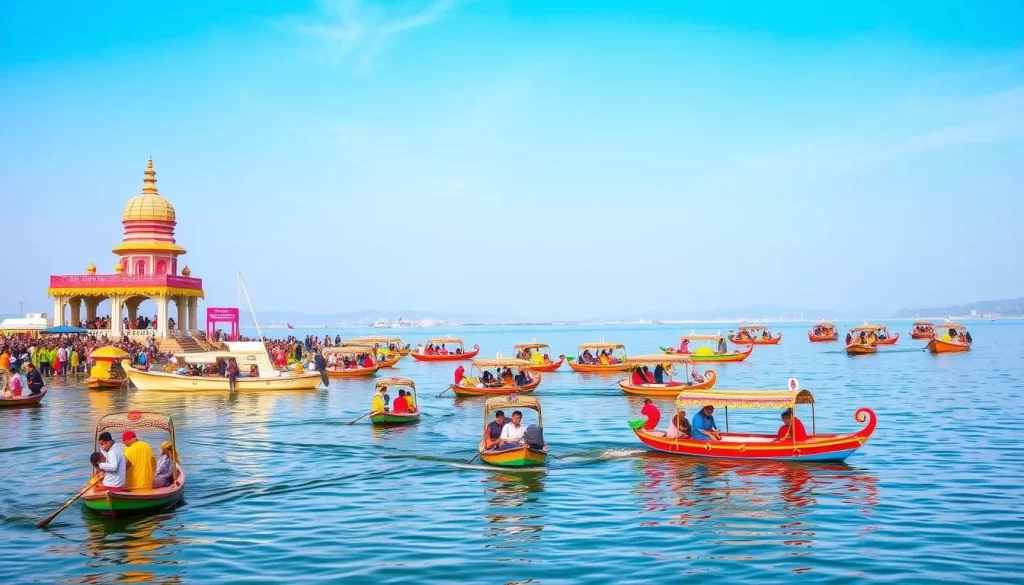
Every December, the Neermahal Water Festival brings the serene Rudrasagar Lake to life with a spectacular display of cultural activities and boat races. The festival is a celebration of Tripura’s rich heritage and its iconic Neermahal Palace.
The Festival’s Connection to Neermahal Palace
The Neermahal Water Festival is deeply connected to the historical Neermahal Palace, situated in the midst of Rudrasagar Lake. This palace, built in the 20th century, serves as a significant cultural and historical landmark.
Boat Races and Cultural Performances
The festival features exhilarating boat races and a variety of cultural performances, including music and dance, showcasing the state’s vibrant cultural diversity. You can expect to be mesmerized by the rhythmic beats and the competitive spirit of the boat races.
Festival Schedule and Location
The Neermahal Water Festival is held over three days in December. The events are centered around Rudrasagar Lake in Melaghar, approximately 53 kilometers from Agartala. You can enjoy the boat races from the eastern bank of the lake or from specially constructed viewing platforms.
Uttarayan Sankranti: The Sacred Dip
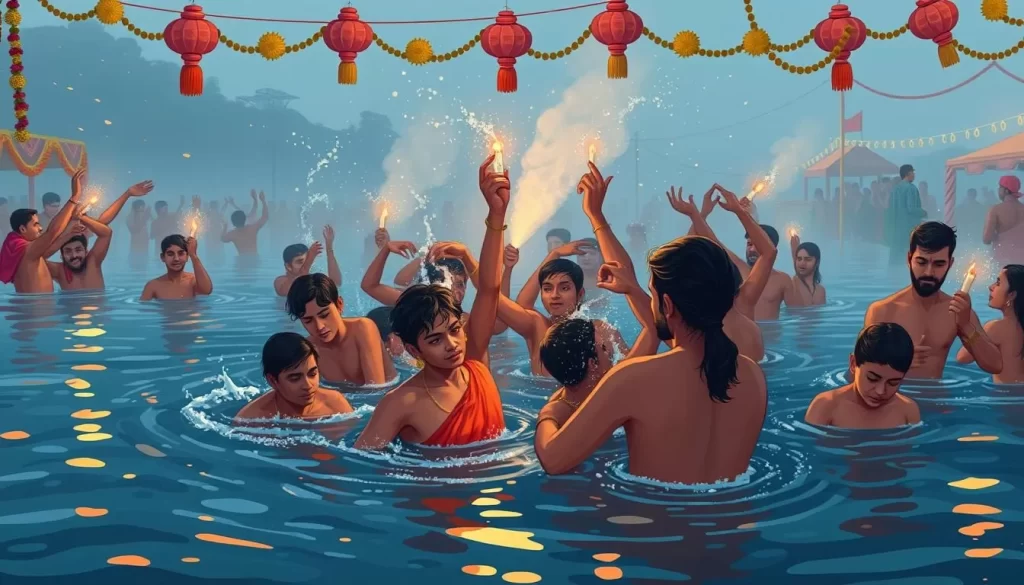
As the solar calendar flips to January or early February, Tripura gears up to celebrate Uttarayan Sankranti, a festival of great religious significance. This event is marked by a sacred dip in the river, a ritual that is believed to have profound spiritual benefits.
Religious Significance
Uttarayan Sankranti is observed with great fervor in Tripura, particularly in the South Tripura district. The festival is associated with the sun’s journey into the northern hemisphere, symbolizing the victory of light over darkness. This day is considered auspicious for spiritual growth and renewal.
Rituals at Tirthamukh
The town of Tirthamukh, located approximately 30 kilometers from Amarpur in South Tripura, is the epicenter of Uttarayan Sankranti celebrations. Devotees gather here to take a sacred dip in the river, a ritual that is believed to cleanse the soul. The site is revered for its spiritual energy, attracting thousands of pilgrims each year.
Visitor Information
Visitors planning to attend Uttarayan Sankranti should be prepared for the pilgrimage by bringing necessary supplies and respecting the sacred nature of the location. It is advisable to arrive a day early to secure accommodation and experience the pre-festival preparations. The festival also features tribal dance performances and community feasts, offering a rich cultural experience alongside the spiritual rituals.
Tripura, India: Top Festivals to Check Out When Visiting Throughout the Year
If you’re looking for a destination that embodies the spirit of celebration, Tripura is the place to be, with its diverse festivals and rich cultural heritage. The state’s calendar is filled with numerous multi-day events that feature folk and tribal music and dance, offering a great chance for relationships to form between members of various tribes.
Spring and Summer Festivals
During the spring and summer months, Tripura celebrates various festivals that showcase its vibrant culture. Although specific spring and summer festivals are not detailed, the cultural calendar is rich with events that highlight the state’s heritage.
Autumn and Winter Celebrations
Autumn in Tripura begins with the celebration of Durga Puja in October, incorporating unique local characteristics. November brings the Orange and Tourism Festival in Jampui Hills. As winter approaches, December features the Neermahal Water Festival, January welcomes Poush Sankranti, and February sees the celebration of Uttarayan Sankranti. Throughout the winter months, various tribal communities host their own harvest thanksgiving festivals, featuring unique music and dance forms.

Pilak Festival: Celebrating Archaeological Heritage
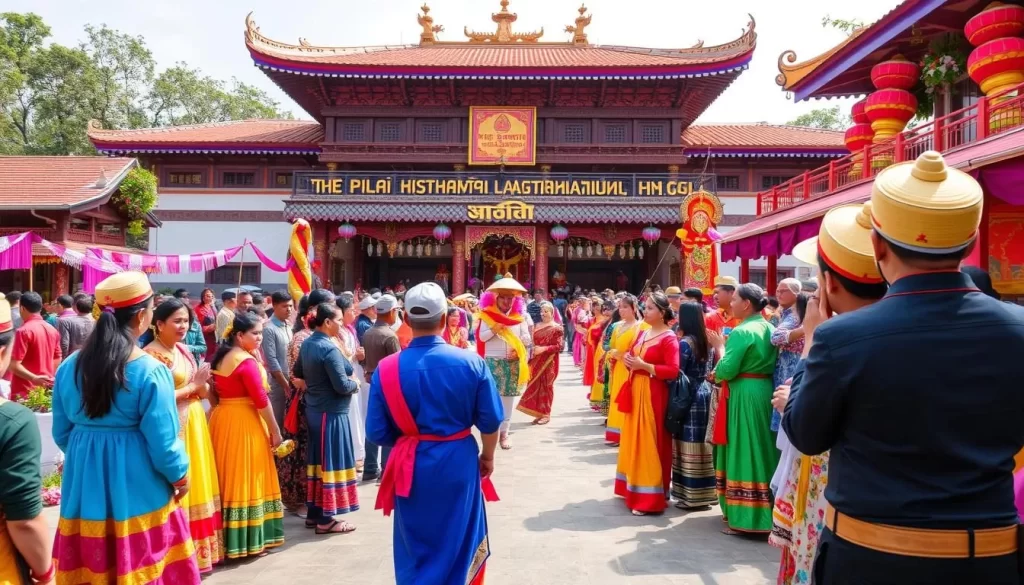
The Pilak Festival is a unique celebration in Tripura, India, honoring its rich archaeological heritage. Held annually in either February or March, this festival is a perfect blend of culture, history, and natural beauty, making it a fascinating experience for visitors.
Historical Significance of Pilak
Pilak, located in the South Tripura district, is an archaeological site of great historical importance. The site is known for its ancient sculptures and ruins, which date back to several centuries, providing a glimpse into the region’s rich cultural past.
Festival Activities and Attractions
During the festival, the Pilak Historical Palace is decorated, and various research activities are conducted. Visitors can explore the archaeological site, witness cultural performances, and participate in the festivities that showcase Tripura’s heritage.
Timing and Access Information
The Pilak Festival is typically held in late February or early March. The site is approximately 100 kilometers from Agartala, accessible by taxi or bus. Temporary accommodations are available near the site, and the festival grounds are open from morning until late evening.
Unakoti Festival: Mystical Rock Carvings Celebration
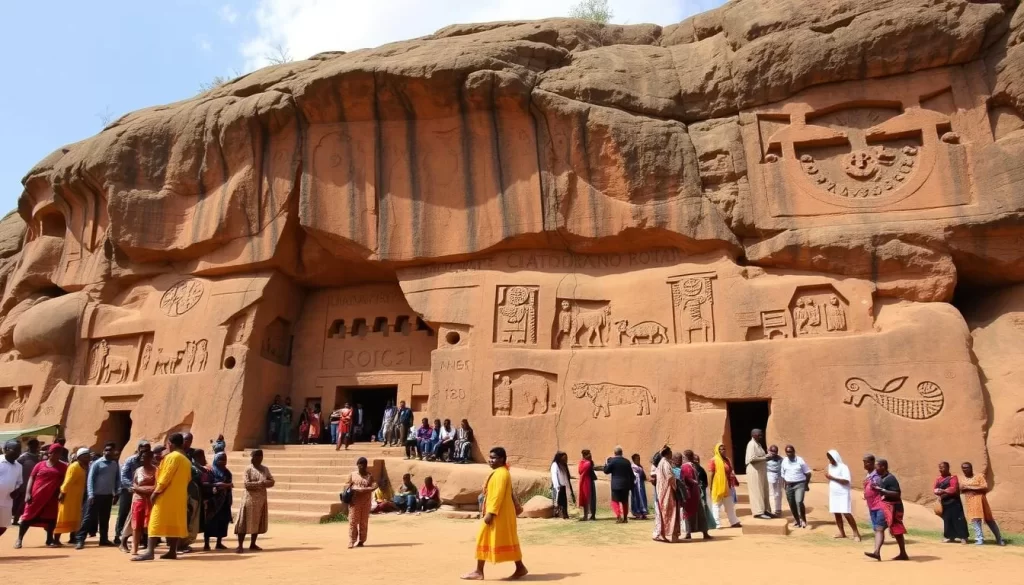
As you explore the festivals of Tripura, you’ll discover the Unakoti Festival, a vibrant celebration centered around ancient rock carvings. The Unakoti Festival is a unique event that takes place in the Unakoti district of Tripura, India.
The Sacred Site of Unakoti
Unakoti is home to a vast collection of ancient rock carvings, making it a significant cultural and archaeological site. The site is marked on the cultural calendar of Tripura, attracting visitors from across the region.
Festival Traditions and Events
The Unakoti Festival is celebrated twice a year, during Maghi Sankranti in January and Ashokastami in March-April. The spring celebration offers the most comfortable weather conditions for exploring the hillside sculptures. During the festival, special transportation arrangements are made from Kailashahar, the nearest town.
Best Time to Visit
The ideal time to visit Unakoti is from October to March, avoiding the intense summer heat and heavy monsoon rains. Morning visits offer the best lighting conditions for photography. For those interested in both the festival and archaeological aspects, planning a three-day visit is recommended, allowing time to participate in celebrations and explore the rock art at a leisurely pace, marking the end of a fulfilling cultural journey.
Experiencing Tripura’s Festivals: Practical Tips
As you prepare to immerse yourself in Tripura’s vibrant festivals, here are some practical tips to enhance your experience. Every traveler has more than enough reasons to participate in the Tripura celebration, thanks to the delicious treats, intriguing costumes, soulful music, kind hospitality, and festive atmosphere.
What to Wear and Bring
When attending a festival in Tripura, dress modestly and comfortably, considering the local climate and cultural norms. Bring essentials like water, sunscreen, and a camera to capture the vibrant moments.
Cultural Etiquette for Visitors
Be respectful of local customs and traditions during the event. Avoid disrupting ceremonies or rituals, and follow the guidance of local participants.
Photography and Participation Guidelines
When photographing or participating in festival activities, be mindful of your surroundings and the local community. Always seek permission before capturing religious ceremonies or tribal rituals. Consider making a small donation when photographing at religious sites. After the event comes to an end, sharing your photographs with local tourism offices can help document and preserve cultural traditions.
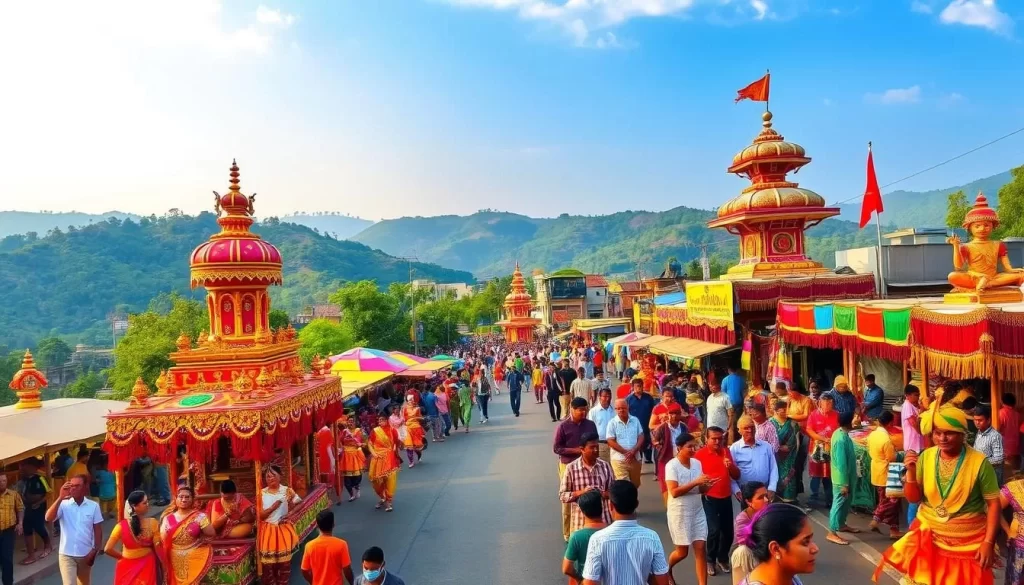
Conclusion: The Spirit of Celebration in Tripura
Tripura’s festivals are more than just celebrations; they are a window into the state‘s soul, revealing its rich culture and the warmth of its people.
By participating in these vibrant festivals, you gain authentic insights into the state‘s diverse communities, their spiritual beliefs, and artistic expressions. The genuine warmth and inclusivity with which outsiders are welcomed make these experiences truly unforgettable.
As you leave Tripura, the memories of colorful processions, rhythmic tribal dances, and shared feasts will remain as your most precious souvenirs, offering a glimpse into one of India’s most culturally rich but lesser-explored culture through its festival.
The above is subject to change.
Check back often to TRAVEL.COM for the latest travel tips and deals.
